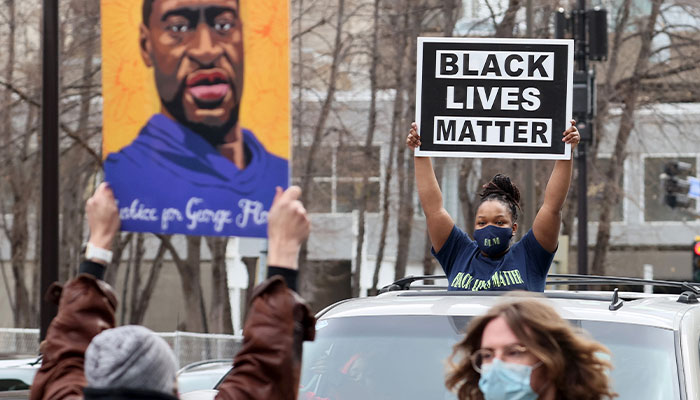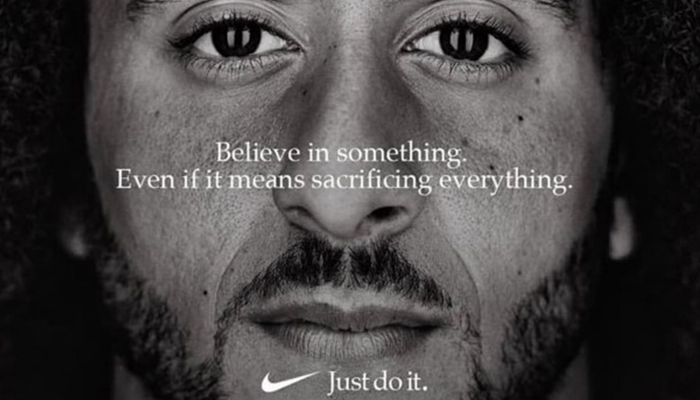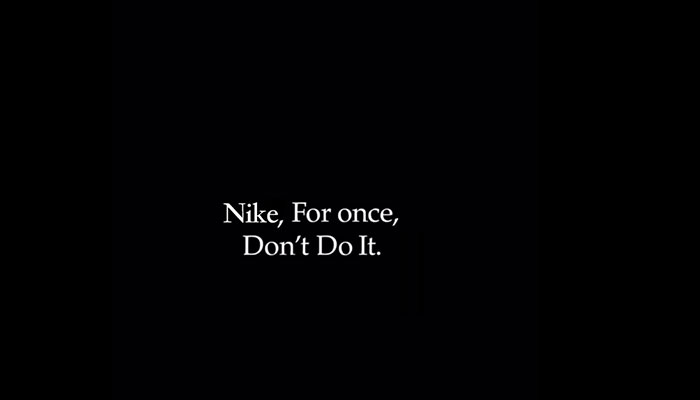When George Floyd died after being pinned to the ground by US police officer Derek Chauvin in May 2020, the corporate world was quick to offer its support to the Black Lives Matter movement.

Verdict is in: People on the streets of Minneapolis react to today's result in the trial of former police officer Derek Chauvin, found guilty of murdering George Floyd.
Some of the biggest brands in the world like Nike, Reebok, Amazon and Netflix all weighed in on police brutality and racism by adjusting corporate logos and taglines, and posting items on social media within days.
Fast forward almost 12 months to the shooting and death of a young, black man – 20-year-old Daunte Wright – by a police officer in the same US city of Minneapolis and the reaction from the corporate world is totally different.
This time, none of the major brands that led the previous brand activism has taken a stand. They have remained silent, have not expressed solidarity, nor have they posted any commentary on their socials.
So, what has changed?
Easing tensions
The political climate in the US has changed with a new Administration in the White House.
Political tensions in the US have eased since 2020 and brands are less motivated to become vocal public activists as President Trump’s removal from the White House has taken the heat out of the social discourse.
Corporates can’t easily afford anymore losing customers to political ideology after suffering through COVID-19.
For instance, Nike’s ‘Dream Crazy’ campaign in 2018 was an indirect response to then president Trump as the campaign's star Colin Kaepernick – the footballer who began the 'take a knee' protest against police brutaility – was the target of his ire.
Moreover, most activist brands’ political ideologies are aligned with the Democrats and President Biden’s Administration. In fact, brands like Patagonia endorsed Democrat senators, and campaigned against Republican candidates with the tagline 'Vote the assholes out'.
COVID-19 rules
Corporates can’t easily afford anymore losing customers to political ideology after suffering though COVID-19. They are becoming less strident and wary of taking a hit to the bottom line.

Times have changed: Footballer and civil rights activist Colin Kaepernick in Nike's 'Dream Crazy' campaign ... with the departure of Trump, brands are less motivated to become vocal public activists.
While brand activists generally thought they could afford surviving without Trump supporters, the pandemic forced them to revisit the financial consequence of their activist moves, focusing on the 'do-the-best-we-can approach', and sailing through the chaotic COVID-affected fiscal years.
By adopting a safer and more measured approach, brands are now leaving this to the system to address issues like police brutality and systematic racism. Ben & Jerry’s Instagram feed, for instance, has been more concerned with the prison industrial complex and cannabis legalisation, than BLM.
Cherry-picking issues
Brands have become more selective in their choice of brand activism and certainly less dependent on the socio-political movements like MeToo and BLM.
They are learning from the past responses to their advocacy and activism, instead trying to take steps that minimise the risk of being labelled ‘opportunistic’ by jumping on the social movement bandwagon.
- 'Right thing to do': Gig economy firms face the music
- How athletes prepare for an Olympics without supporters
So, unless unavoidable, brands are leaning towards steering clear from contentious movements, and instead are playing it safe by cherry-picking social issues that are less polarising and more general.
Now the Biden Administration has a different mandate of ‘unity’, brands that want to play a role will be more focused on bringing the community – with different political ideologies – together.

Dr Abas Mirzaei (pictured) is a Senior Lecturer in the Department of Marketing at Macquarie Business School.



